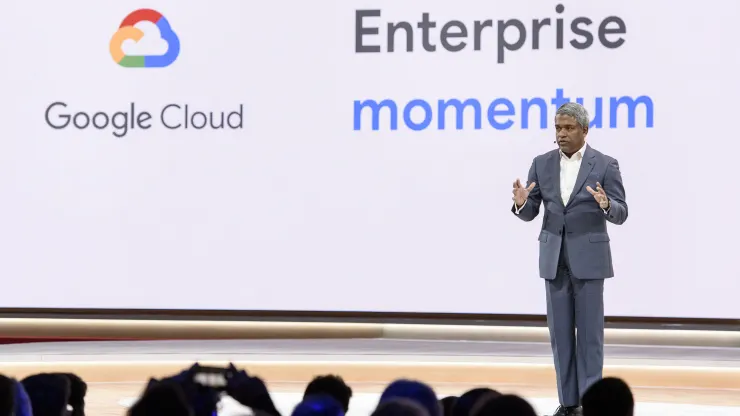
Google announced its foray into the realm of custom Arm-based server chips at the Cloud Next conference in Las Vegas, unveiling the Axion processors set to debut later in 2024. This strategic move aims to enhance affordability and performance in cloud computing, as the tech giant endeavors to compete with industry frontrunners such as Amazon and Microsoft.

"Almost all their services are already ported and optimized on the Arm ecosystem," highlighted Chirag Dekate, an analyst at Gartner, emphasizing the significance of Google's entry into the Arm chip market. The company's adoption of Arm technology aligns with a broader industry trend, as competitors like Amazon Web Services introduced Graviton Arm chips in 2018, followed by similar initiatives from Alibaba and Microsoft.
Despite Google's dominant position in advertising, its cloud segment, which encompasses corporate productivity applications, has been rapidly growing and now constitutes nearly 11% of the company's revenue. However, with Amazon and Microsoft jointly controlling around 62% of the cloud infrastructure market, Google faces formidable competition in this arena, as per Gartner estimates.
According to a spokesperson, Google views the introduction of virtual machines using Arm-based chips as a positive move, reflecting the company's prior involvement with Arm technology. The upcoming Axion processors, named after the Greek word for "a source of knowledge," are expected to bolster Google's aspirations in cloud computing. They will enable the migration of internal operations, including YouTube advertising and data analytics tools, to cloud-based Arm instances.
Google asserts that Axion offers a significant performance boost, surpassing the speed of the fastest general-purpose Arm-based virtual machines in the cloud by 30%. Moreover, it outperforms comparable VMs based on x86 architecture by 50%. This underscores the potential of the new processors to expedite various workloads, ranging from web services to artificial intelligence training.
"Google's announcement of the new Axion CPU marks a significant milestone in delivering custom silicon that is optimized for Google's infrastructure," remarked Arm CEO Rene Haas, acknowledging the collaborative effort between Google and Arm to develop high-performance chips tailored for cloud computing.
Moreover, the broader adoption of Arm-based chips is anticipated to yield environmental benefits, with virtual servers containing Axion chips delivering 60% more energy efficiency than their x86 counterparts. This emphasis on sustainability aligns with Google's broader commitment to reducing its carbon footprint across its operations.







